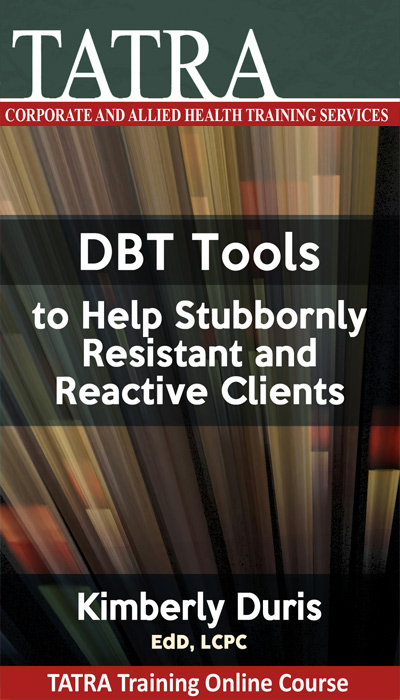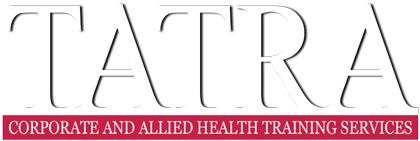15 Mar DBT Tools to Help Stubbornly Resistant and Reactive Clients

Dialectical Behavioral Therapy can be extremely helpful even if your client doesn’t meet all criteria for BPD (actual BPD prevalence is less than 2% of the general population). DBT skills have contributed to positive outcomes in the treatment of other conditions like mood disorders, trauma, eating disorders, and even anxiety and OCD! Its core benefit lies in the attention it gives to arousal and reactivity, viewed primarily from a psychosocial perspective. Clinicians who love to use these skills like DBT’s baked in philosophy of: “Yes you have experiences and strong emotions that are valid (i.e. acceptance), but you must change your behaviors if you want to improve your experiences and relieve suffering (i.e. change).” DBT’s construct validates and affirms the client’s experiences and reactions while simultaneously placing ultimate responsibility on them (not their therapist, spouse, sibling) to put in the work necessary to experience positive change.
This workshop will teach participants about core DBT skills to use with reactive and resistant clients. Treatment resistance is a common experience in counseling, frequently leaving the counselor and the client frustrated with the treatment process. Utilizing techniques found in DBT’s emotion regulation and distress tolerance skills, participants will learn how to apply specific interventions to address therapy-interfering behaviors. Examples of effective strategies to use with resistant clients will be provided. The workshop will include a review of core concepts within DBT and updated techniques within the treatment.


a). Participants will gain an understanding of the fundamental techniques utilized in DBT treatment.
b). Participants will identify core DBT concepts used to treat therapy-interfering behaviors.
c). Participants will examine the benefits and limitations of DBT treatment with resistant and reactive clients.
Target Audience:
Clinical Mental Health Professionals such as Counselors, Psychologists, Marriage and Family Therapists, and Licensed Clinical Social Workers.


Kimberly Duris, Ed.D., LCPC, CADC, C-DBT
Kimberly Duris is the clinical director for Guiding Light Counseling in Bolingbrook, IL, and an associate professor of psychology at Lewis University in Romeoville, IL. Dr. Duris has worked in community mental health for 20 years. Her educational background includes a doctorate of education specializing in counselor education and supervision (Ed.D. in CES) and a master’s degree in counseling psychology. In addition, Dr. Duris is a Licensed Clinical Professional Counselor, a Certified Alcohol and other Drug Counselor, and a certified Dialectical Behavior Therapy.
Dr. Duris’ clinical experience includes working with adolescents who have been dually diagnosed with a mental illness and a substance abuse disorder, adults with chronic, severe mental illness, and private practice work settings, and multiple positions providing clinical supervision to master level interns and master’s degree professionals seeking licensure. Dr. Duris began utilizing DBT as a treatment modality in a psychosocial rehabilitation program servicing adult with severe, chronic mental health diagnoses.

This online workshop will give you instant access to 2 sessions of video content, accessible via streaming on our website, as well as downloadable PowerPoint slides. You can view the course content in your own time, there is no time limit on access.
The duration of this course is 3 learning hours.
Please click the green ‘Mark Complete’ button on each module as you progress. A certificate of completion will be generated upon finishing the course and completing a short assessment quiz. If the certificate is not showing, please confirm you have marked all sections as ‘Complete’. Please consult your professional organisation/association to confirm whether you are able to claim any CPD points/hours for this online workshop.



